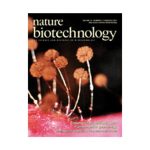Bone progenitor dysfunction induces myelodysplasia and secondary leukemia
Marc H.G.P. Raaijmakers, Siddhartha Mukherjee, Shangqin Guo, Siyi Zhang, Tatsuya Kobayashi, Jesse A. Schoonmaker, Benjamin L. Ebert, Fatima Al-Shahrour, Robert P. Hasserjian, Edward . Scadden, Zinmar Aung, Marc Matza, Matthias Merkenschlager, Charles Lin, Johanna M. Rommens, and David. T. Scadden
Abstract
Mesenchymal cell populations contribute to microenvironments regulating stem cells and the growth of malignant cells. Osteolineage cells participate in the hematopoietic stem cell niche. Here, we report that deletion of the miRNA processing endonuclease Dicer1 selectively in mesenchymal osteoprogenitors induces markedly disordered hematopoiesis. Hematopoietic changes affected multiple lineages recapitulating key features of human myelodysplastic syndrome (MDS) including the development of acute myelogenous leukemia. These changes were microenvironment dependent and induced by specific cells in the osteolineage. Dicer1−/− osteoprogenitors expressed reduced levels of Sbds, the gene mutated in the human bone marrow failure and leukemia predisposition Shwachman-Bodian-Diamond Syndrome. Deletion of Sbds in osteoprogenitors largely phenocopied Dicer1deletion. These data demonstrate that differentiation stage-specific perturbations in osteolineage cells can induce complex hematological disorders and indicate the central role individual cellular elements of ‘estroma’ can play in tissue homeostasis. They reveal that primary changes in the hematopoietic microenvironment can initiate secondary neoplastic disease.





